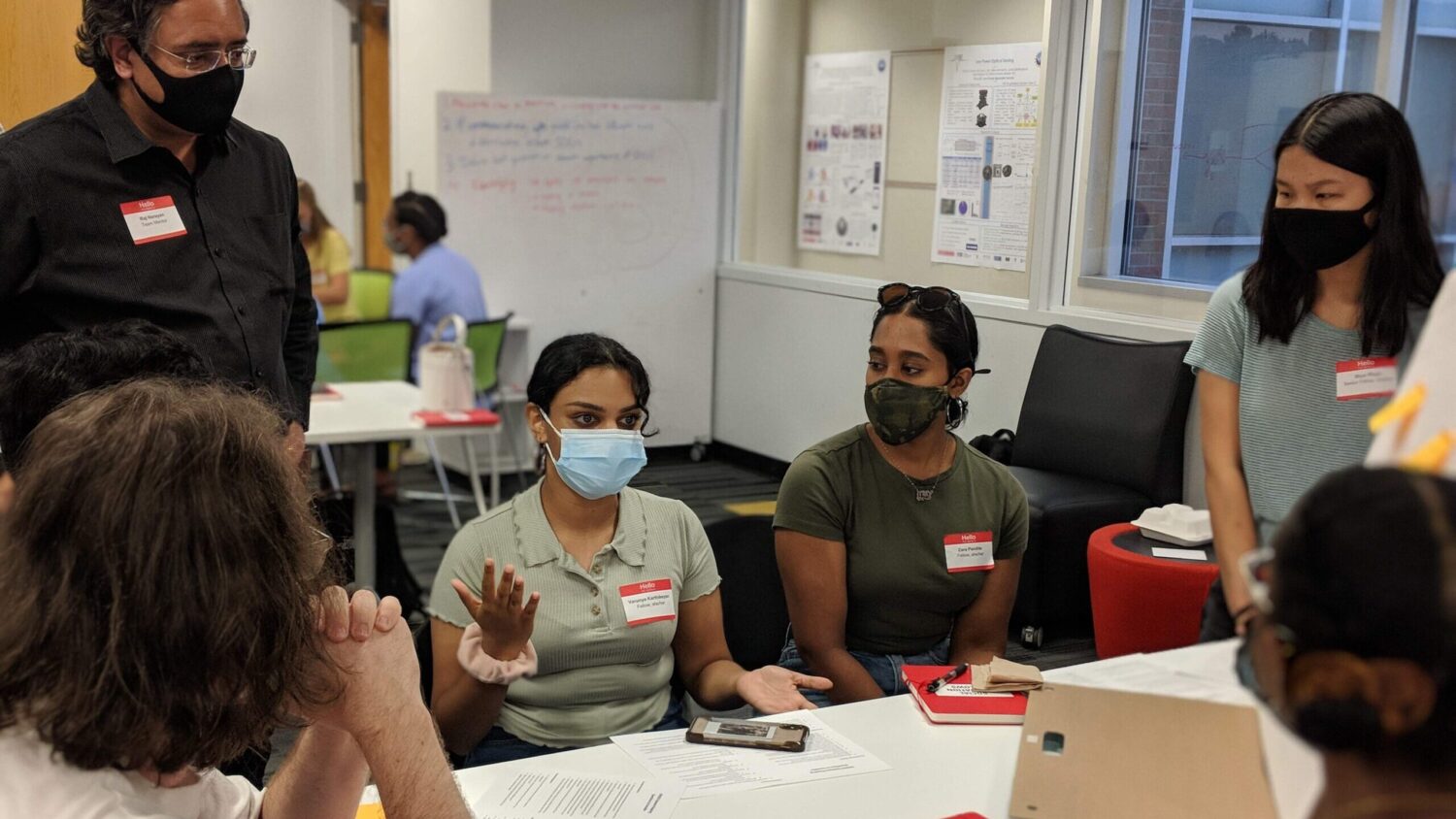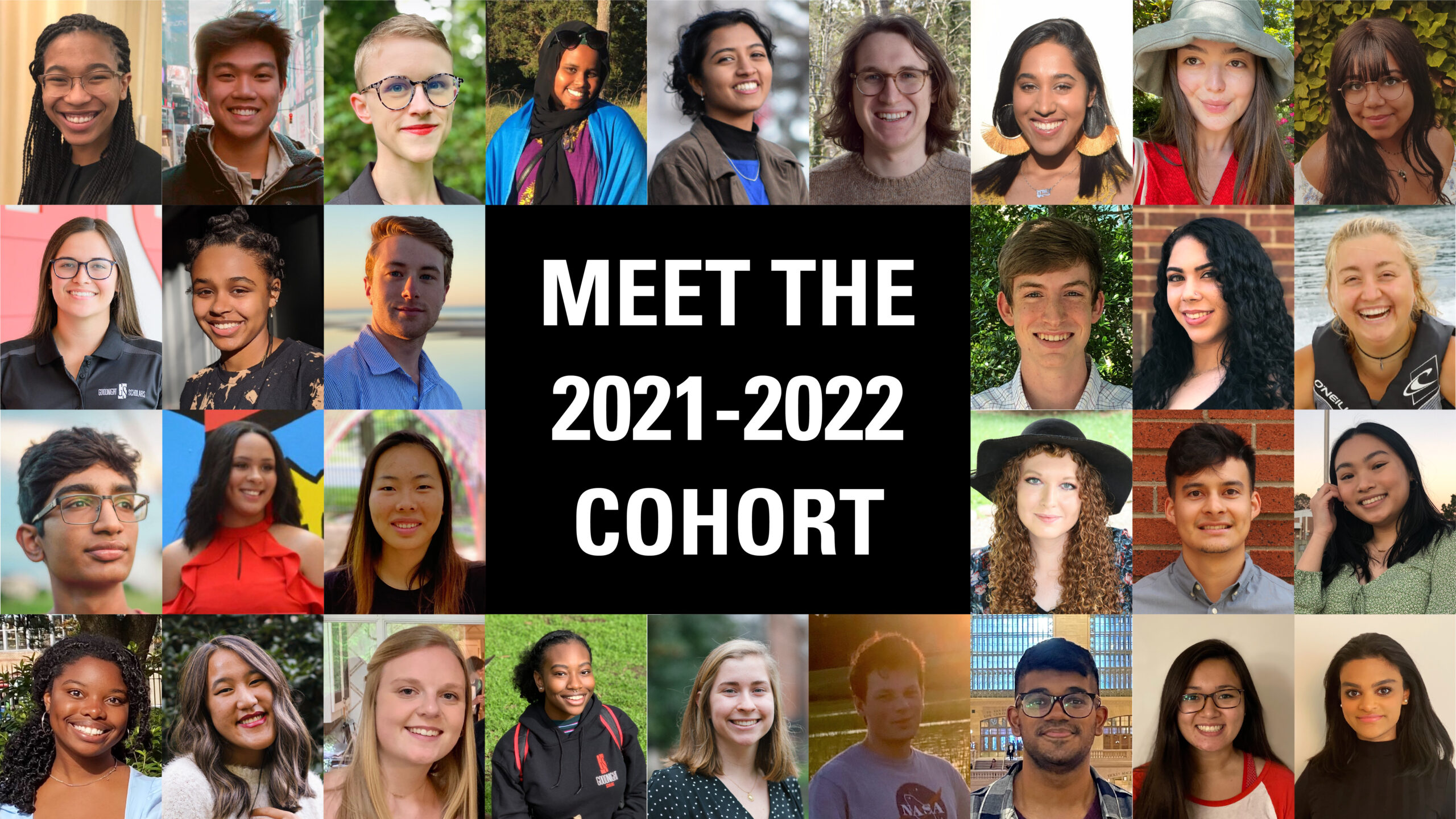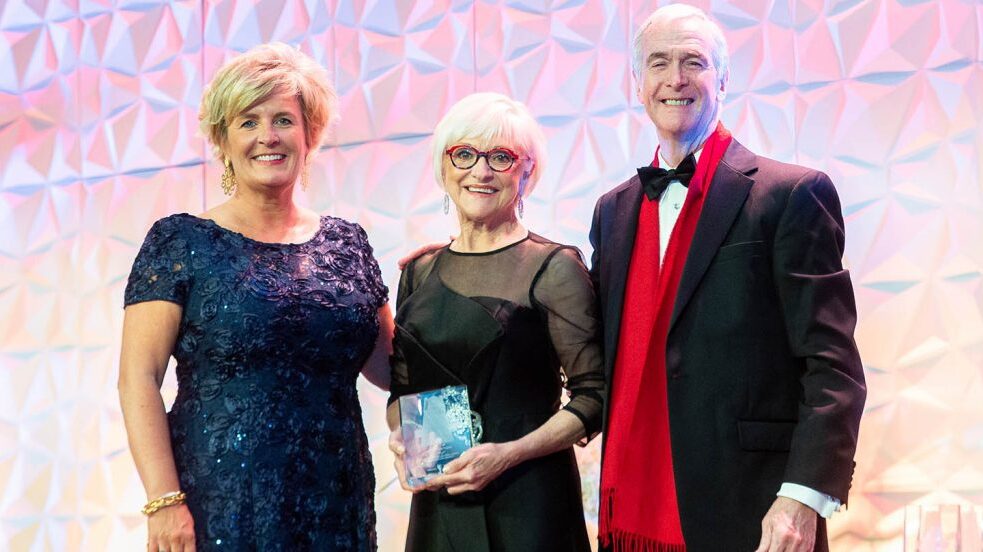Interview with Social Innovation Fellows Team Mentor Raj Narayan

Raj Narayan volunteers as one of six team mentors in the Social Innovation Fellows (SIF) program. Team mentors play a guiding role for our student teams, offering them valuable expertise and experience to compliment their own fresh perspectives.
Tell me a little about yourself.
My name is Raj Narayan – actually Rajeev Narayan, no middle name. I was born in Zambia to physician parents from India. My parents met in Mumbai but grew up very differently from each other, culturally, with one being from Gujarat in the northern part of the country, and the other from Tamil Nadu, in the south. My family moved about 20 times throughout my childhood; in addition to Zambia we lived in England and Canada before eventually ending up in various states throughout the US. As a young adult I moved to North Carolina to attend UNC-Chapel Hill, where I majored in business at the Kenan-Flagler Business School. After my graduation in 1991, I worked briefly at the US Commission on Civil rights in DC and then went on to law school at the University of Florida, but returned to North Carolina in 1995 and have been here ever since (it is the longest time that I have ever lived in one place).
My focus during law school was public interest law, and I particularly enjoyed the “learning by doing” aspect of my program, which led to my developing an interest in entrepreneurship. After reading a newspaper ad for NC State’s master’s program in technology commercialization in the College of Management (before it was Poole), I applied and successfully completed that program. The tech commercialization (TEC) program, in which I now participate as a Professor of the Practice of Entrepreneurship, not only taught me a great deal about entrepreneurship but also introduced me to the Kenan Institute for Engineering, Technology, and Science (Kenan Institute) where I currently serve as the Associate Director. I’ve also had the great privilege to participate in some wonderful leadership training opportunities, including the William C. Friday Fellows, Eisenhower Fellows and Marshall Fellows programs, which enable me to remain engaged with others at a local and global level.
What fundamentally defines me is a sense of “cultural elasticity” based on the context of my upbringing and diverse background. I really value my ability to adapt and bring a global perspective to all of my work and as a mentor.
Why did you choose to be a team mentor? Why does this program matter to you?
Part of the reason that I chose to be a team mentor was driven by the mission and the passion with which you all as a program really laid the foundation for through the Social Innovation Fellows program: providing students at NC State University an opportunity to explore avenues for impacting social change in a way that was personally meaningful to them. So the mission of the Social Innovation Fellows program and making this experience possible was meaningful to me as well, and I wanted to be a part of that opportunity to engage with young bright people who have a passion for bringing [about] positive change in the world.
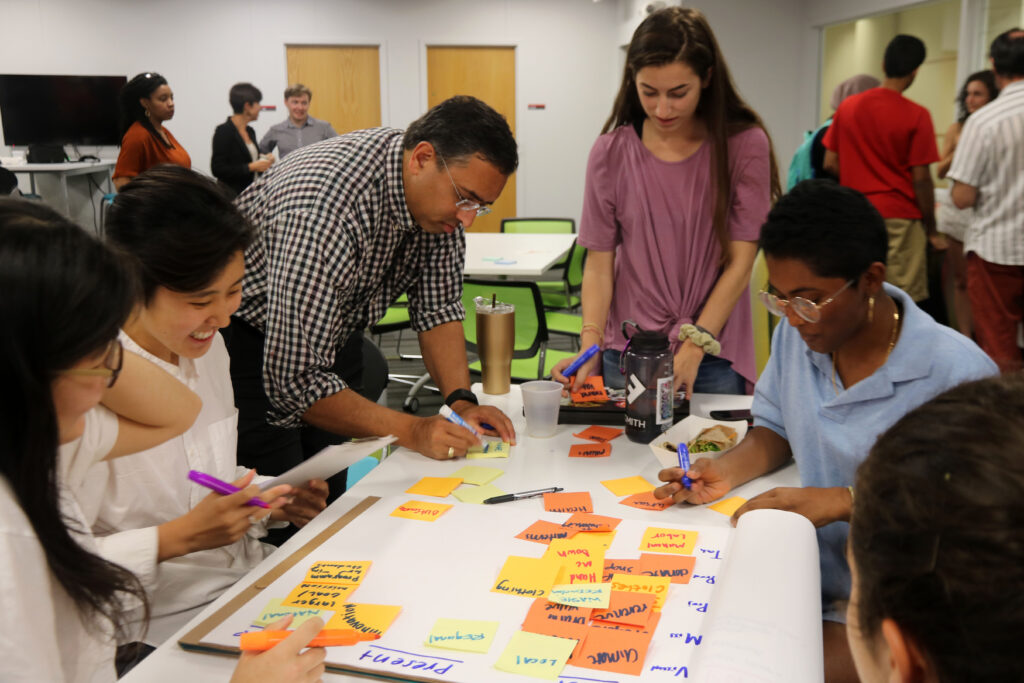
What do you enjoy most about being a mentor? What do you get out of it?
I really believe in the power of positivity as well as the power of collaboration and being around these young people really energizes me and makes me a better mentor and listener. My philosophy is that mentorship is a two-way street; as much as we might be mentoring these students, in many ways there’s feedback that we get from that experience which in turn makes us better mentors. I’ve experienced this each year that I’ve been a team mentor, the learning that comes from the exchange of ideas that enables me to continue to grow as a leader as well. Each year we have different teams, each of these students have different disciplines and cultural backgrounds and there are particular perspectives (driven largely by the value systems of these students) that are different from ones that I have experienced. If I’m intentional about this idea of being open minded, I can think of no better place to explore my own cultural elasticity and global identity than the Social Innovation Fellows program. I’m being mentored by the students in many ways and they may not even know it.
I love how you talk about maintaining a positive mindset. What’s something that centers you and helps you stay positive?
Part of the reason why I maintain this sense of positivity is because it’s ingrained. I try to get some time alone and practice meditation regularly, and part of that [mindfulness] process is to think about the good things. Certainly there are plenty of negative things out there that one could focus on, but leveraging the energy of optimism during that time helps to bring that out in my interactions with others. I truly believe that we can make the world a better place by exchanging positive energy, and doing so results in a sort of regenerative cycle. Of course it requires practice, and I feel like I can be inconsistent with it at times, but continuing to find that pathway of positivity and sharing that with others is important to me. That’s another reason why I love the [SIF] program, is that it gives us plenty of space and a platform to do that with one another.
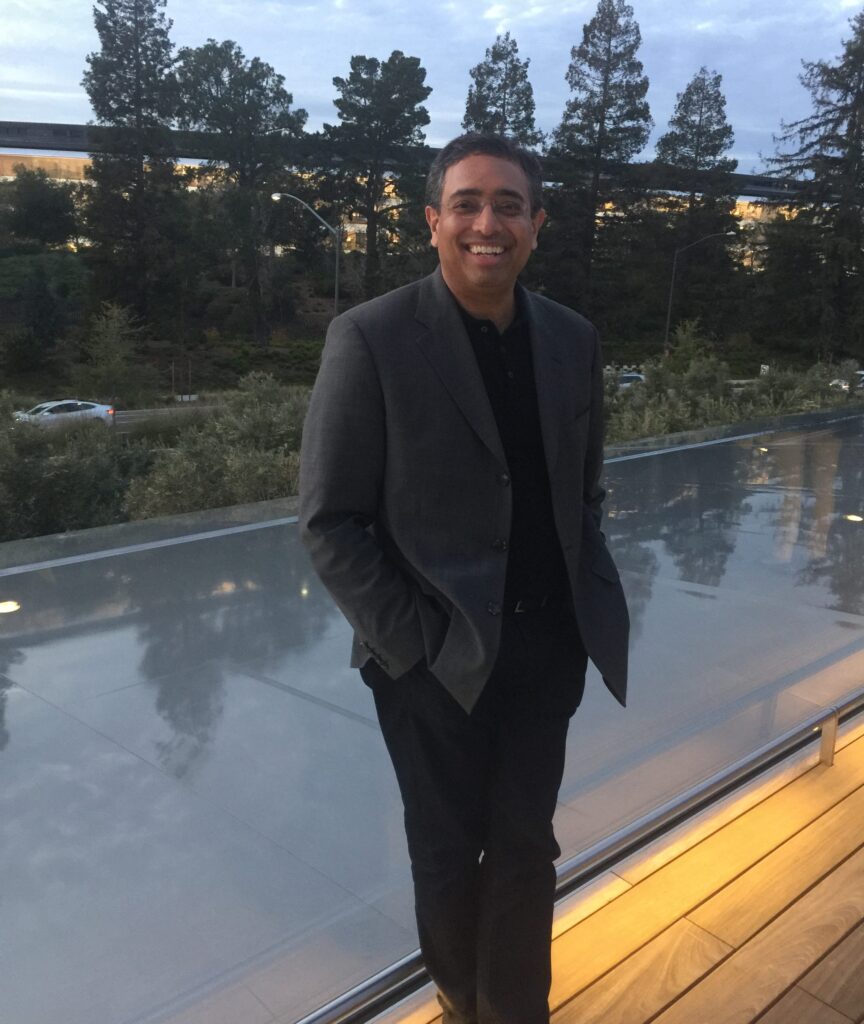
What advice would you give to a young person seeking to build a relationship with a mentor?
Keep an open mind and ask lots of questions to get to know each other. Find those things that are common and things that are different, especially because you could learn a lot from your different perspectives and different experiences. And don’t undervalue your own experiences or be afraid to share that with others, because [from the perspective of a mentor], there is much to be gained from a young person’s experiences. Related to this, listen carefully to what people are saying, and try to understand before making any kind of judgment. Human beings are inherently imperfect, so try not to be too hard on yourself or others. Part of this journey is working on and celebrating those imperfections in ourselves and feeling comfortable and open-minded enough to receive and learn from constructive feedback.
So what are you reading right now?
I rarely read one thing at a time. I read a hard copy newspaper every single day, even the obituaries. But I usually hand the comics section over to my wife. Part of the reason that I read the paper physically is that it allows me a chance to focus on what’s happening in our community and world and shares stories of people’s lives and accomplishments. I also enjoy reading The Economist, one of the best magazines that someone can read for a real, global perspective on what’s happening in the world. I also recently revisited one of my favorite books, The Prophet by Khalil Gibran, because it’s one of those books that you can get something new out of every time you read it.
In addition to reading some of my favorite books, I also found a recipe for the perfect chocolate chip cookie in the newspaper – and it turned out great. Additionally, I’ve started practicing yoga again. My mom teaches yoga, so I’ve been able to do that with some of my other family members and even SIF team members. It’s just a great way to practice coming together with others in a mindful capacity and connect with people – even remotely.
Any additional advice to share?
A good piece of advice I’ve given myself that I reflect back to a lot in times of my own work, is to understand what you’re in control of and what you can’t control and try to focus more on what you can do, rather than the stuff that you can’t change and being able to differentiate between the two. Adapting our own behaviors/perceptions with respect to the things that are not in our control can give us more peace of mind. But also, one thing we can control is how we treat other people.
Positivity and a smile can go a long way. If we begin any conversation or interaction with a smile and a genuine appreciation or care for that other person and interact with other people with dignity, respect, humility, and kindness, then the world and our individual relationships will be all the better for it.
